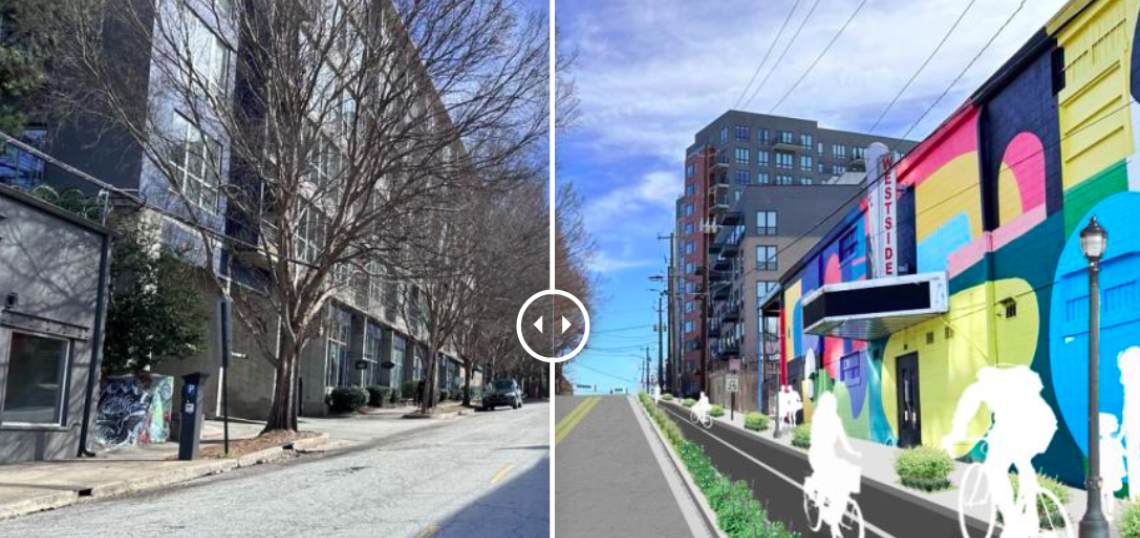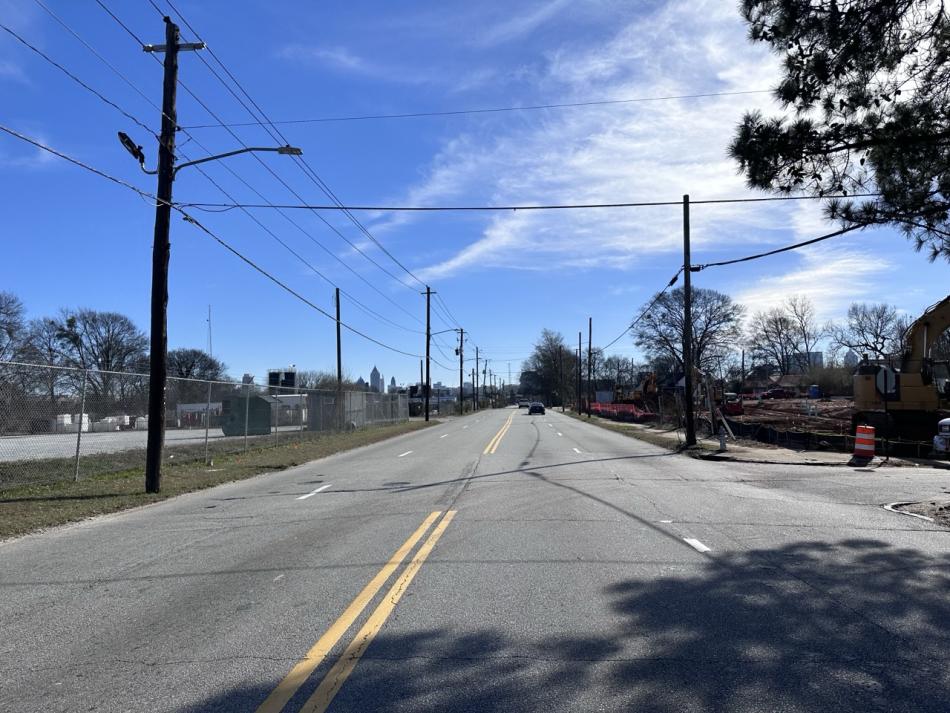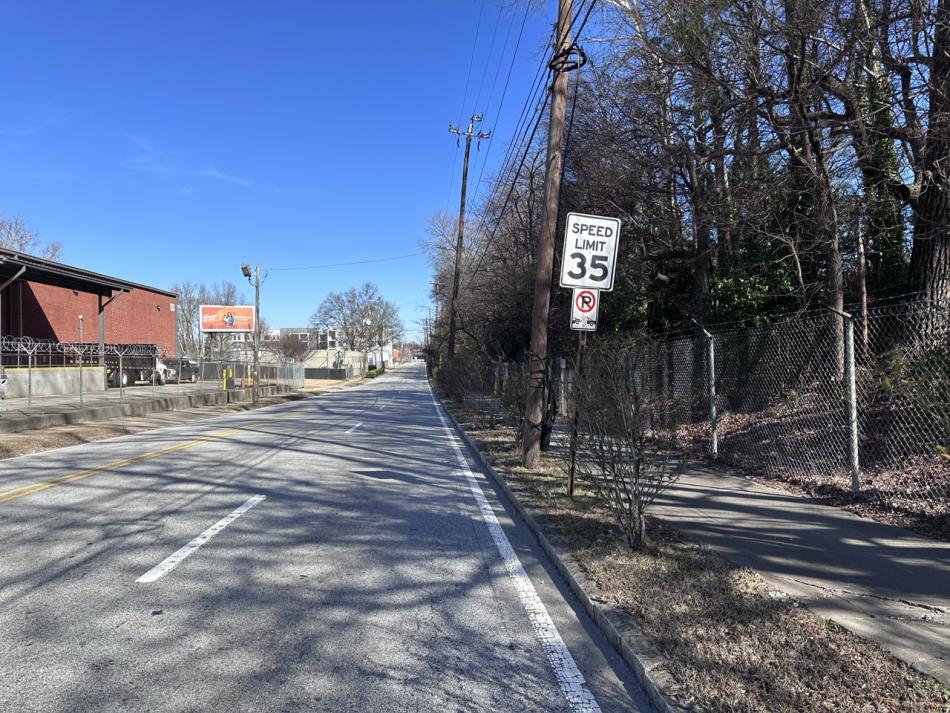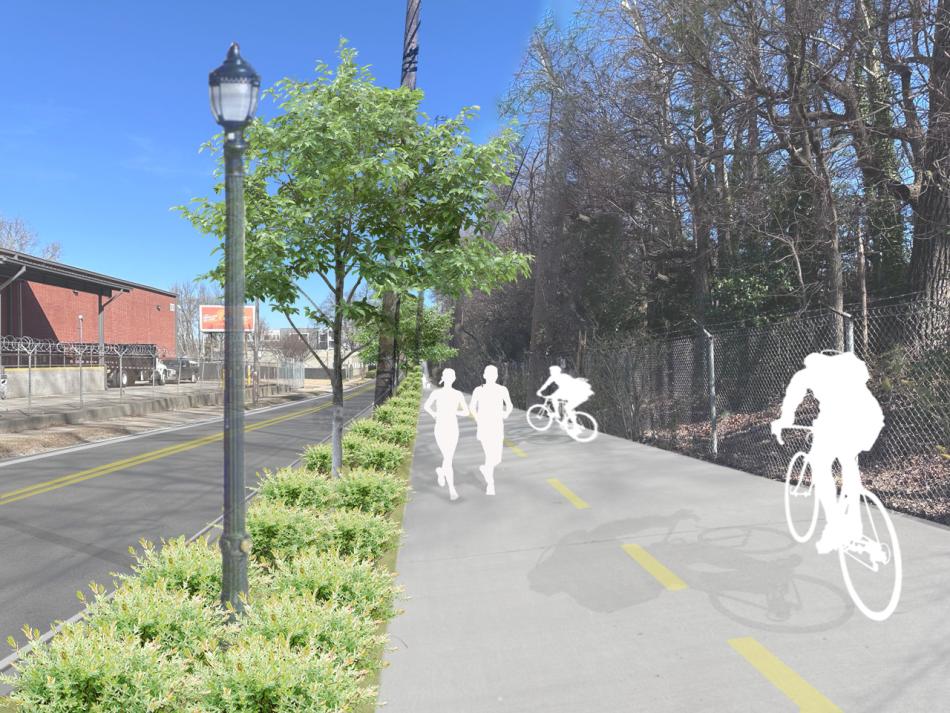Good news for alternate transportation enthusiasts of Atlanta: The city has landed a significant injection of federal funding for an initiative that aims to beef up transportation, bicycling, and pedestrian infrastructure between Midtown and Atlanta’s largest greenspace.
Upper Westside Community Improvement District and city officials announced today a $16-million federal RAISE grant—that’s Rebuilding American Infrastructure with Sustainability and Equity—has been awarded to a multimodal project called Westside Thrive.
Westside Thrive is aiming to retrofit dangerous roads, build bike and pedestrian infrastructure, and improve transit stops between Westside Park and Georgia Tech, a distance of roughly three miles. Its broader goal is to bring widespread, critical infrastructure upgrades to communities that have historically been underserved on Atlanta’s Westside.
The initiative has also received a $6.9 million local match from the city’s Moving Atlanta Forward infrastructure program, bringing the total allotted budget to $22.9 million. (Westside Thrive was previously known as “Westside Park Multimodal Access” until the Atlanta City Council elected to change it, an effort to better reflect goals of connectivity, accessibility, sustainability, and increased safety.)
According to project leaders, funding will go toward design and construction of walking and biking paths, stormwater management fixes, improved bus stops with seating and shade, and pedestrian-scale lighting along several key corridors in the area: 10th Street, Brady Avenue, Johnson Road, West Marietta Street, and Joseph E. Lowery Boulevard.
Those improvements will “reconnect historically industrial neighborhoods bisected by railroads where multimodal infrastructure was never conceived” and link them with job centers, according to an announcement today. Those neighborhoods include English Avenue, Grove Park, Howell Station, Marietta Street Artery, and Rockdale.
As a next step, Upper Westside CID officials are aiming to start soliciting proposals from qualified engineering and design firms sometime next year.
Project leaders cautioned that Westside Thrive’s large scale means it will take several years to design and permit through the city. Construction isn’t expected to begin until 2027.
Local officials credited U.S. Senators Raphael Warnock and Jon Ossoff, and Congresswoman Nikema Williams, will helping to bring the U.S. Department of Transportation’s RAISE funding to fruition.
“We're addressing over a century of transportation neglect, connecting residents to major employment hubs, educational institutions, and recreational areas,” said Elizabeth Hollister, Upper Westside CID executive director, in today’s announcement.
Below, find a before/after preview of changes planned for 10th Street, West Marietta Street, and Joseph E. Lowery Boulevard (in that order, from top) courtesy of Upper Westside CID officials:












